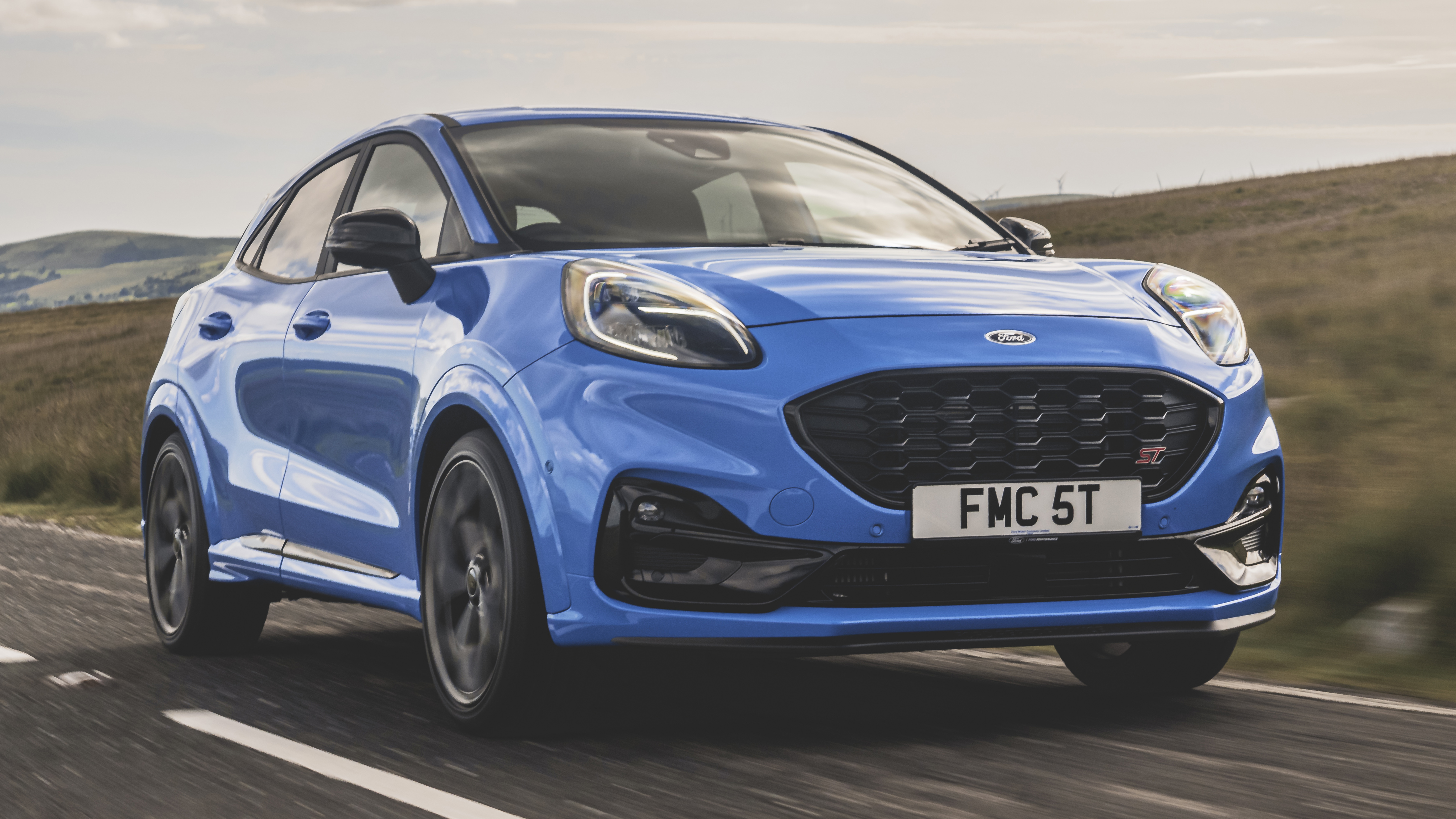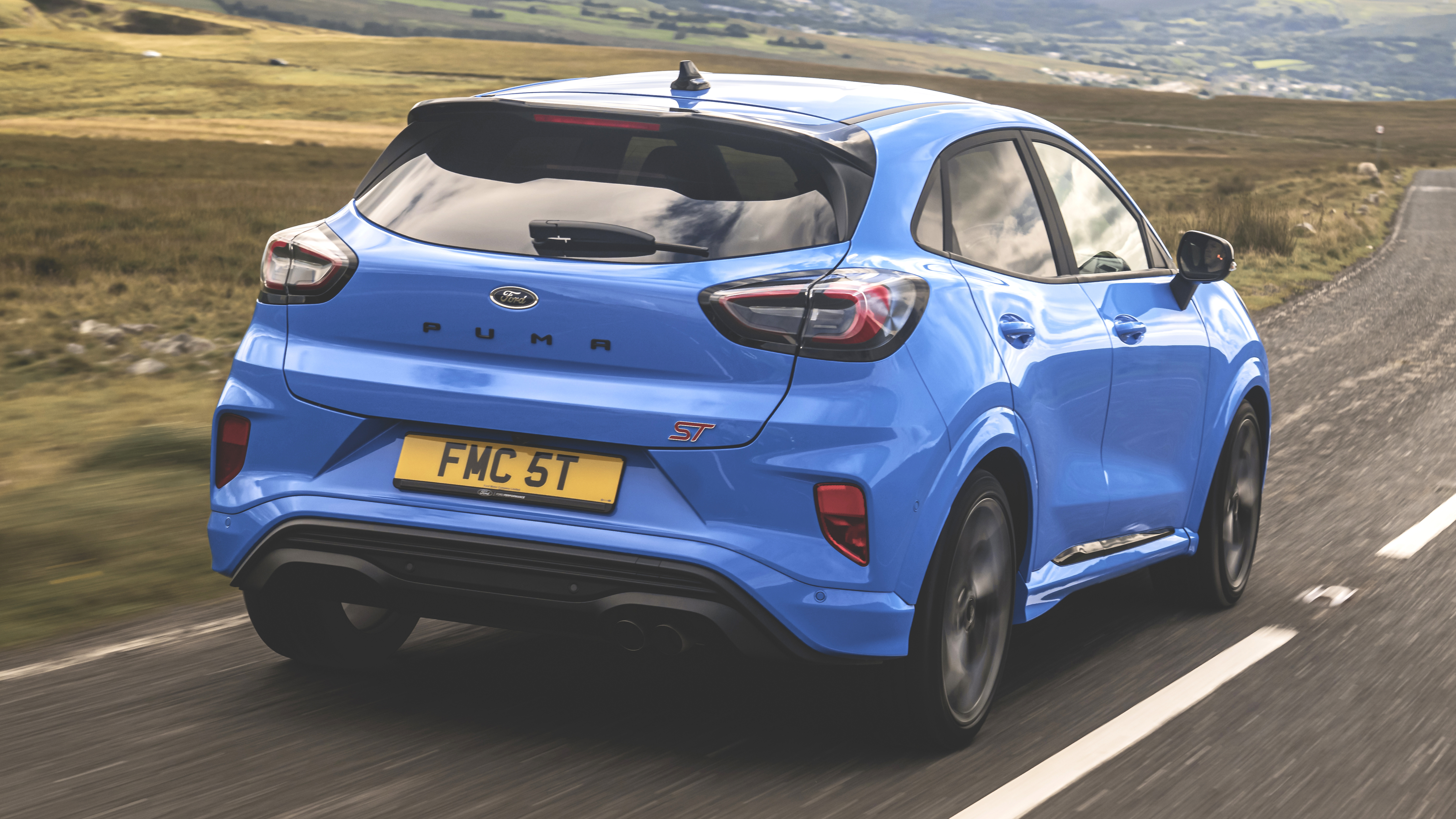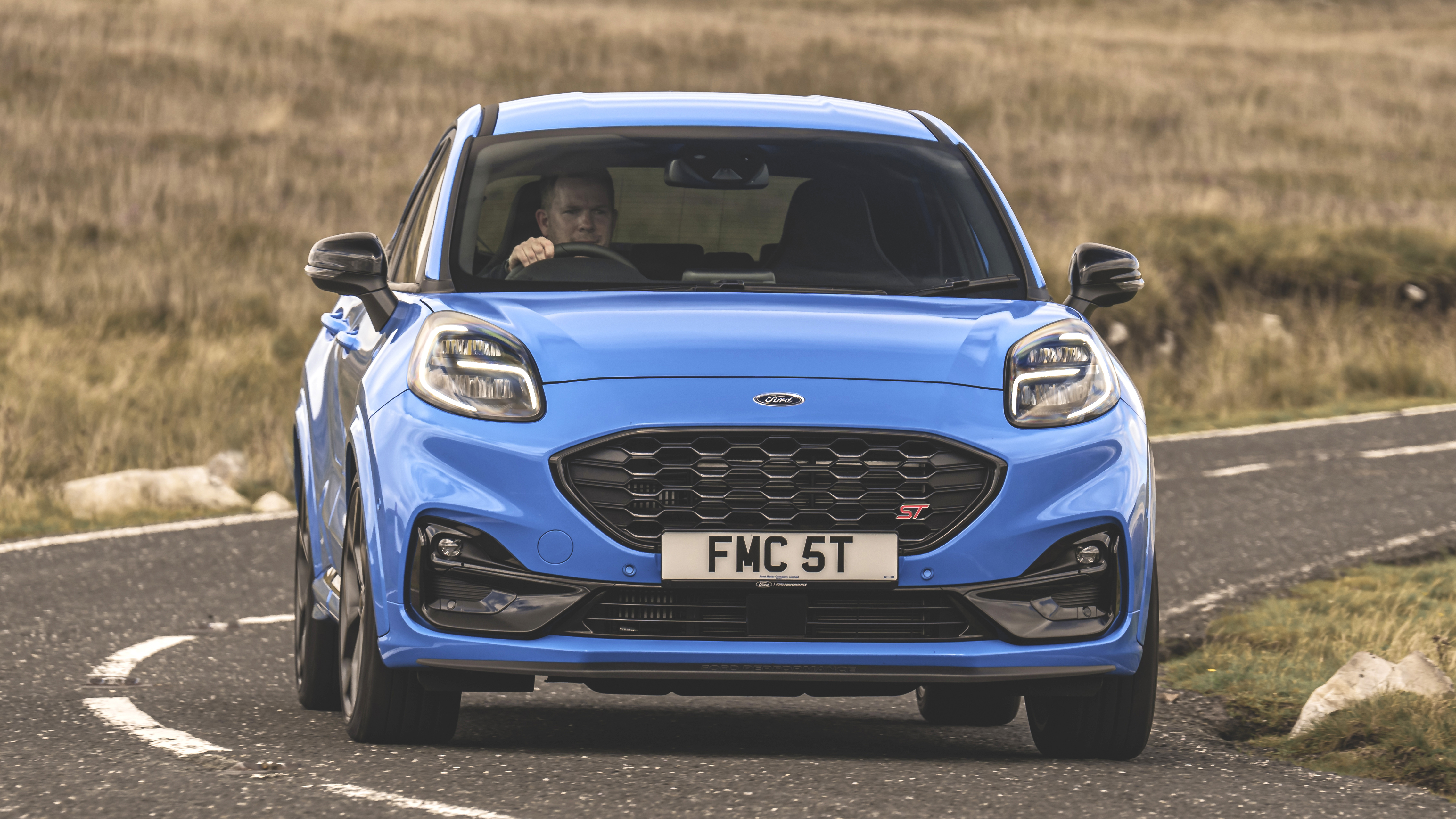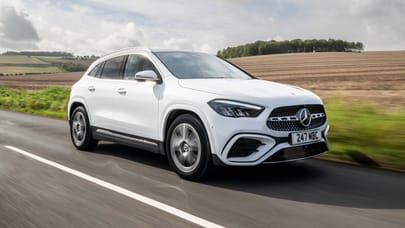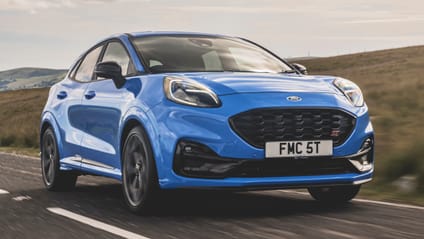
Good stuff
Fast, terrific dynamics, extremely well-engineered
Bad stuff
Ride can be a little coarse, sub-optimal fuel consumption if you go for it, what is the point of the hybrid?
Overview
What is it?
A compact SUV. Two words to chill the heart of anyone who still maintains that driving can still be, you know, entertaining.
Ford, stout defender of mass market driving dynamics (that might be about to change with an influx of trucks and SUVs) hasn’t always balanced the ingredients perfectly, but the last two generations of Fiesta ST have been magnificently punchy efforts; Top Gear-award winners no less.
Too bad the Fiesta’s been killed off. It means the Ford Puma - a high-riding, yet Fiesta-based crossover - is all that remains of the supermini’s supreme handling legacy, combined here with a quirky design and waterproof, rubber-lined MegaBox boot receptacle.
Gosh. Sell it to me.
Ford has thrown rather a lot at the Puma ST. The charismatically thrummy 1.5-litre, three-cylinder EcoBoost engine has 197bhp and 236lb ft, making it capable of 0-62mph in 6.7 seconds. The chassis has been heavily breathed on, and if you opt for the Performance Pack (an entirely reasonable £950) you’ll add a Quaife limited-slip differential and torque vectoring.
Ford Performance has even worked with Michelin to develop bespoke Pilot Sport 4S rubber. No-one else in this sector has gone to this trouble, although we doubt anything else would really benefit from the effort.
There’s also a bunch of selectable drive modes, up to and including a Track set-up. This is perhaps a touch optimistic - unless Ford is chasing the coveted sub-200bhp small SUV lap time record around the ’Ring - but nevertheless underlines its ambitions for a car whose great uncle was effectively a 1.3-litre Escort GL estate.
Is that it? Just one engine?
No, but it’s the one you want. In 2023 Ford tried to address a key weakness of the 1.5 (its perpetual, unquenched thirstiness) by introducing a 1.0-litre mild-hybrid capable of - brace yourself - an entire 2mpg extra. Huh? It’s also less powerful and slower, with six-speed manual fun replaced by a seven-speed auto box. Though at £31,760, it is at least 10 whole British pounds cheaper.
Weird. But then this is a weird lookin’ car…
True, but the ST makeover hardens the Puma’s slightly Pixar-ish, bug-eyed look. Check out the reworked front bumper with a Ford Performance-embossed splitter, and a rear roof spoiler and diffuser (for more ’Ring handy downforce). A new grille improves engine cooling, while a gloss black finish on the roof and elsewhere adds something that approximates menace. You can have Magnetite or a machined metal finish on the 19in alloys.
It’s also extremely well-equipped. Wireless charging, heated windscreen, front and rear parking sensors and Ford’s SYNC 3 comms and infotainment system are all part of the package, as well as Apple CarPlay and Android Auto compatibility.
As is the modern way, app-based remote operation of various vehicle features including locking and a vehicle locator (c’mon, we’ve all had wobbly moments in the airport long-term car park) is available via the FordPass Connect modem tech. This also uses cloud-connected Local Hazard Information to warn the driver about something untoward up ahead.
A passenger sun visor and ash tray would’ve been as good as it got back in Great Uncle Escort’s day.
Our choice from the range

What's the verdict?
Given its close kinship with the Fiesta, it’s no surprise that the Puma ST is easily the most satisfying crossover/small SUV to drive. What is surprising is just how much effort Ford has made to give the Puma proper performance chops. If it can’t quite match the sheer exuberance of its smaller (and now deceased) sibling, it gets pretty close; closer than anything touting this sort of body and versatility has managed before.
Ford has answered a question that perhaps not that many were asking. But we’re pleased they have.
The Rivals
Trending this week
- 2026 TopGear.com Awards
"Drives like a BMW ought to": why the iX3 is Top Gear's 2026 Car of the Year




